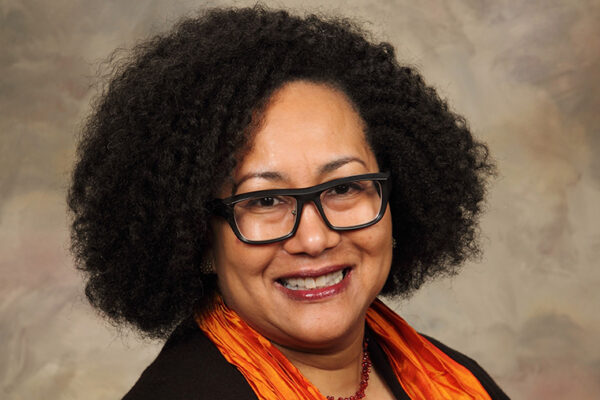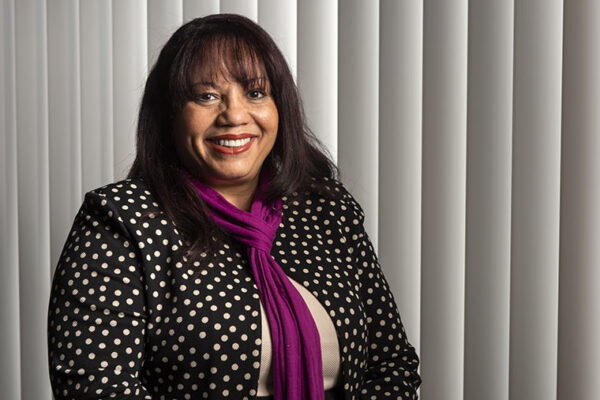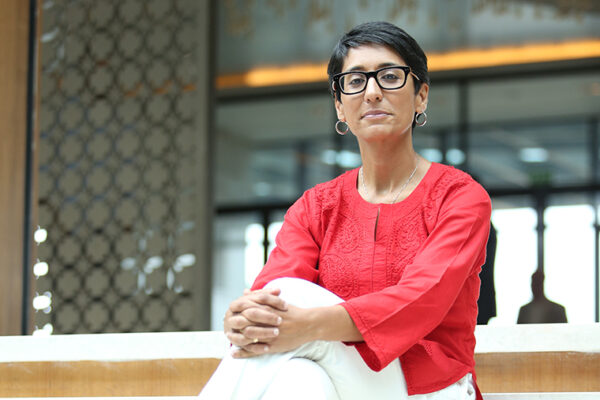If we believe in diversity, why are we not more diverse?
That question vexes Adrienne Davis, vice provost and William M. Van Cleve Professor of Law at Washington University in St. Louis.
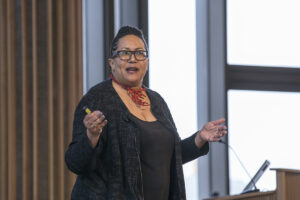
“It’s counterintuitive, but universities lag behind the military, corporate America and the government in diversity,” Davis said. “We conceive of ourselves as the most progressive of those institutions. And, indeed, almost everyone on this campus would say that they value diversity, that they despise historical injustice and they value equality and inclusion. And yet when you look at research universities and liberal arts colleges, we are the least diverse. There is a mismatch between our values and our reality.”
During the Day of Discovery, Dialogue & Action dialogue session “Field Notes: Reflections from WashU’s Diversity Practitioners,” Davis, Emelyn dela Peña, associate vice chancellor and dean of the Center for Diversity and Inclusion, and Nicole Hudson, assistant vice chancellor of the Academy for Diversity, Equity, and Inclusion, will discuss their efforts to better align who we are with who we want to be. They will be joined by LaShawnda Fields, a PhD student at the Brown School; Joseph Pangelinan, director of cultural awareness and diversity at the School of Medicine, and Toni Aguilar Rosenthal, a sophomore in Arts & Sciences. The session is scheduled for 11:15 a.m. Wednesday, Feb. 20, in Hillman Hall.
Davis, dela Peña and Hudson, along with Sherree Wilson, associate vice chancellor and associate dean for diversity, equity and inclusion, at the School of Medicine, have joined forces to align and strengthen diversity and inclusion initiatives across campuses and populations. It’s a new effort — both Wilson and Hudson joined Washington University in 2018 — and one that is unusual among universities, which typically appoint a single chief diversity officer.
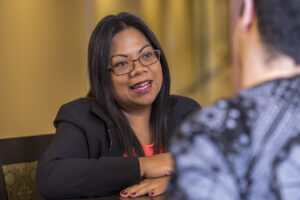
“That model may work in business, but not necessarily at a university, which is decentralized and has shared governance,” dela Peña said. “I’ve been on campuses with a chief diversity officer, and inevitably either the staff, the students or the faculty will feel that they are not served. The strength of our model lies in the fact that each of us is on the ground, working closely with our respective populations. But as senior leaders, we also have the power to implement real change that will benefit the entire university community.”
Dela Peña offers this example. Say an international student reports being discriminated against by a service worker but, in the process of making that complaint, says racist things.
“I have a team I can work with where I can say, ‘How do we resolve this in a way that’s about healing the community and not just making this an HR adjudication process?’ And how do we help our students better understand the community that they are now part of here in St. Louis,” said dela Peña, who helped conceive the team approach with Davis.
Davis, who led the search committees for both dela Peña and Hudson, has been working on diversity issues at Washington University for a decade. In 2008, Chancellor Mark S. Wrighton and then-Provost Ed Macias charged her with building a more diverse faculty. And she has succeeded. The number of black faculty have increased by 113 percent and the percentage of women on the University Council skyrocketed from 23 to 56 percent.
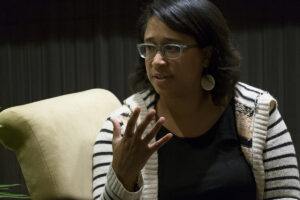
During that period, the university accelerated efforts to recruit and support a more diverse student body. Launched in 2014, the Center for Diversity and Inclusion was central to that work. In 2016, dela Peña joined the CDI, which has emerged as a place where students could seek support during upsetting events such as the Jason Stockley verdict; learn to communicate with students from different backgrounds and perspectives; and study diversity scholarship.
Then, in the fall of 2018, the university established the Academy for Diversity, Equity and Inclusion, a recommendation of the Commission on Diversity and Inclusion. Hudson, who most recently served as deputy mayor for racial equity and priority initiatives for the City of St. Louis, was hired to launch the academy and develop strategies to improve climate and culture at all university campuses.
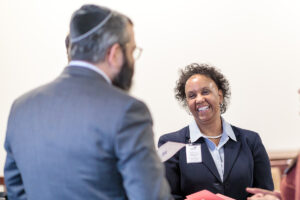
Last fall, Wilson joined the School of Medicine after serving at the University of Iowa Carver College of Medicine, where she designed a plan to help faculty and health-care workers provide culturally sensitive care and incorporated implicit bias training for faculty, staff and trainees. She currently is meeting with faculty, staff, students and trainees to assess needs on the Medical Campus. Wilson will lead a conversation with Day of Discovery, Dialogue & Action keynote speaker Irshad Manji at 5 p.m. Tuesday, Feb. 19, at the Eric P. Newman Education Center on the Medical Campus.
By assembling a group with different but deep expertise, Washington University is poised the become a national leader in diversity and inclusion, Davis said. She’s excited by the opportunity and thrilled to do it with four senior women of color. Davis said that as a black female leader, she often feels the need to manage her emotions and the expectations of others in the rooms. But not with this group.
“It’s a safe place where we can reflect, share stumbles and think through risks,” Davis said. “It’s nice to have the opportunity to be completely open and share frustrations. Humor is a great antidote to frustration. A lot of what happens with diversity is truly injurious, but there is a lot of stuff that happens that is just absurd. Sometimes it’s good to have people who understand the absurdities and can laugh with you.”
Day of Discovery runs Tuesday and Wednesday, Feb. 19 and 20, with events and dialogue sessions on the Danforth and Medical campuses. Register here.
